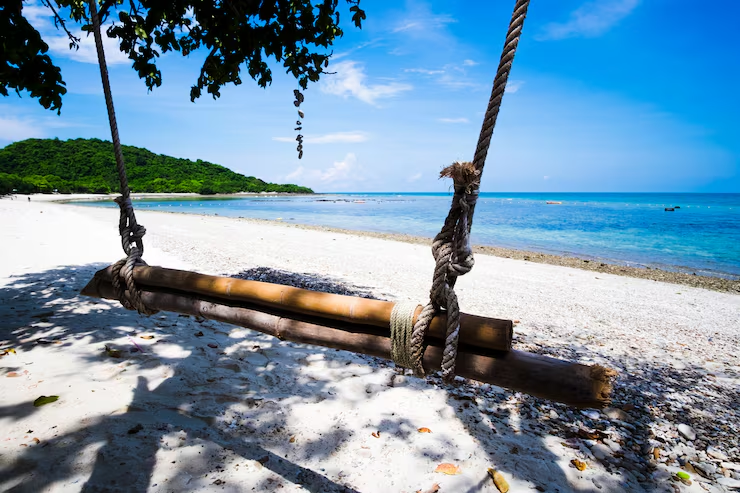If you visit beaches or swimming pools in Nigeria, you will often see lifeguards on duty to ensure everyone’s safety. The lifeguard’s essential role is to prevent accidents and respond swiftly in emergencies, requiring specialized training. Lifeguard training in Nigeria prepares individuals to protect swimmers at beaches, lakes, resorts, and swimming pools across the country.
Nigeria, with its stunning coastline along the Atlantic Ocean stretching about 853 kilometers, is home to numerous beautiful beaches and water destinations. Swimming is popular in both urban and coastal areas, including Lagos, Port Harcourt, and Calabar. This growing interest in aquatic recreation increases the need for well-trained lifeguards, especially during festive and holiday seasons.
Lifeguards in Nigeria work at beaches, hotels, resorts, and swimming pools to safeguard swimmers and tourists. With many aquatic venues expanding, there are ample opportunities for individuals interested in pursuing a rewarding career in lifeguarding.
Lifeguard training in Nigeria is the first step toward entering the aquatic safety field. Once certified through the American Lifeguard Association (ALA), candidates can find employment at pools, beaches, and waterparks nationwide.
ALA-approved training centers in Nigeria offer a range of certification programs throughout the year. While demand peaks during the dry season (December to April), training and job opportunities remain available year-round due to the popularity of hotel pools and resorts.
With over 30 years of international experience, the American Lifeguard Association has certified thousands of professionals globally. ALA certification represents commitment, skill, and dedication to water safety.
The American Lifeguard Association (ALA) is supported by Global Lifeguards and the Swimming Pool and Spa Foundation, both nonprofit organizations dedicated to reducing drownings and enhancing aquatic safety.
ALA’s mission is to make pools, beaches, and waterways safer. To achieve this, ALA partners with employers and training centers in Africa and worldwide to promote standardized, high-quality lifeguard education.
The association has been acknowledged by major health and safety bodies, including:
Training is based on the latest ECC (Emergency Cardiovascular Care) science and integrates findings from international aquatic safety standards. ALA also requires adherence to the Model Aquatic Health Code (MAHC) guidelines for pre-service and in-service training.
To enroll in the ALA lifeguard training course in Nigeria, candidates must meet the following minimum requirements:
Candidates must demonstrate the following before completing the program:
Upon successful completion, participants receive an ALA Lifeguard Certificate, CPR/AED for the Professional Rescuer, and First Aid Certification, all valid for two years.
While many begin lifeguarding as a seasonal or part-time job, it can evolve into a long-term professional career. With additional training, lifeguards can advance into leadership or teaching roles such as:
These roles offer higher pay, management experience, and an opportunity to contribute to Nigeria’s growing aquatic safety culture.
 Learning Skills with Lifeguard Training in Nigeria
Learning Skills with Lifeguard Training in NigeriaDuring the ALA Lifeguard Training Course, participants learn critical lifesaving and first-response skills across several categories:
CPR/AED for the Professional Rescuer Skills
First Aid Skills
Final Skill Scenarios
Would you like to read about: Lifeguard training in Cameroon
The primary goal of lifeguard training in Nigeria is to prepare individuals to maintain safety and prevent aquatic emergencies. Lifeguards not only supervise their areas but also patrol, assist swimmers, and perform rescues when necessary.
The American Lifeguard Association (ALA) continues to lead globally in aquatic health and safety training. With over three decades of experience, ALA’s certified programs stand for professionalism, reliability, and international recognition.
If you’re searching for “lifeguard training near me in Nigeria,” the American Lifeguard Association is your trusted partner in professional lifeguard certification and aquatic safety education.
Here are some frequently asked questions about the Lifeguard Training program you can find more on our FAQ page if you don’t feel free to send us your questions on our contact us page
Students learn rescue techniques, CPR, AED use, and First Aid for water-related emergencies.
Yes, the ALA certification is recognized worldwide, opening job opportunities abroad.
Certified lifeguards can work at beaches, resorts, hotels, swimming pools, and recreation centers.
Your certification is valid for two years and can be renewed through refresher training.
To prepare individuals to prevent drowning incidents and handle water emergencies effectively.
Anyone aged 15 years or older with basic swimming ability can enroll in the course.
The American Lifeguard Association (ALA) provides globally accepted training and certification.
Most ALA lifeguard programs are completed within 2–4 weeks, depending on the course level.
The American Lifeguard Association has been approved for the Capital One Affiliate Program! for Tuition Assistance Loan
To stay updated with our special offers, subscribe to our weekly newsletter. We will not share your information with any third party.
8300 Boone Blvd 5th Floor Vienna, VA 22182
703-761-6750
Media Contact
703-856-8901
alalifeguard@aol.com